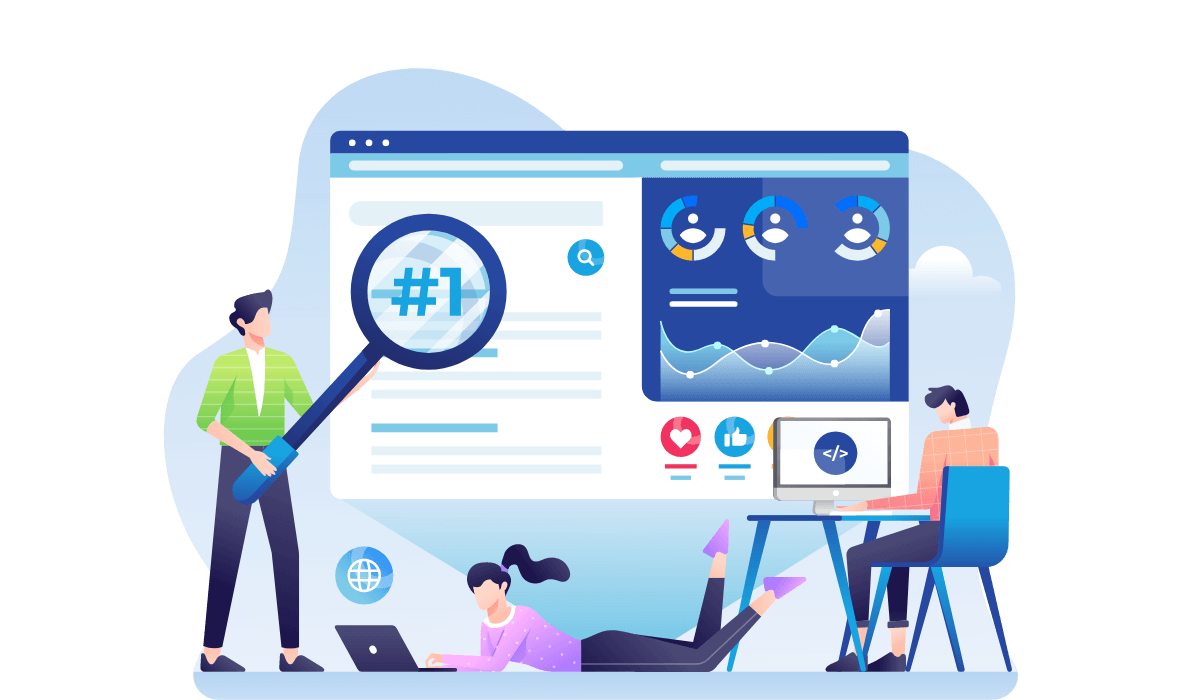Table of Contents
E-commerce companies constantly optimize operations and improve consumer experiences. Artificial intelligence (AI) promises to revolutionize e-commerce processes and transform the business landscape. Its integration into call centers has changed customer support systems.
This article examines the roles of AI in call centers for e-commerce, emphasizing its benefits, problems, and potential outcomes for organizations. It also illustrates how outsourcing can assist businesses in making the best use of AI in e-commerce call center operations.
Read until the end to discover how to outsource call center processes effectively.
The Rise of AI in E-commerce Call Centers

AI is not just a buzzword in e-commerce. Many companies have automated and optimized their processes using AI solutions. Similarly, e-commerce call centers, which serve as the frontline for customer interaction, have undergone significant changes with the infusion of this next-generation technology.
The global market value of call center AI is predicted to expand rapidly in the following years, according to MarketsandMarkets, and e-commerce enterprises should take note of this. The worldwide call center AI market was valued at $1.6 billion in 2022. It is expected to increase at a compound annual growth rate (CAGR) of 21.3% to reach $4.1 billion by 2027.
Other studies report similar uptrends. Future Market Insights states the global market for call center AI will expand to $6 billion by 2032, with a 13.5% annual growth rate. Straits Research projects that the market will reach $8.4 billion by 2031, growing at a CAGR of 21%.
Grand View Research notes that the North American region (U.S. and Canada) led the worldwide market in 2022 with a revenue share of over 39%. This significant contribution can be attributed to the area’s high-functioning e-commerce business, offering opportunities for AI-specific call center solutions.
How AI in E-Commerce Call Centers Transforms Customer Service
What is e-commerce customer service? It involves call or contact center agents addressing customer inquiries, resolving issues, and processing online retail transactions for an optimal buyer or end-user experience.
The following are examples of how AI improves customer service in e-commerce call centers:
- Enhanced consumer support. AI intelligently improves e-commerce call center support by handling everyday transactions, concerns, and order-tracking requests. This step reduces the human agent workload for efficient, accurate customer interactions.
- Personalized customer interactions. One advantage of AI in e-commerce call centers is it can analyze customer data and deliver personalized conversations. Businesses can gain insights into customer preferences, purchase histories, and behavior patterns. This information lets AI tailor responses and recommendations.
- 24/7 availability. AI-driven solutions in e-commerce call centers can operate around the clock. This feature allows customers from different time zones or with varying schedules to receive assistance whenever they need it. The result is an improved customer experience and increased satisfaction.
- Better customer feedback analysis. AI applications in e-commerce call centers employ algorithms to evaluate customer feedback through voice interactions or written communication. This analysis aids businesses in assessing satisfaction and pinpointing improvements for a more customer-centric approach.
- Cost-saving benefit. AI-powered automation minimizes the strain on human agents, lowering e-commerce enterprises’ expenses. AI systems can efficiently perform tasks, including data input, basic inquiry handling, and order processing.
- More robust fraud detection. AI in e-commerce call centers prevents fraudulent activities by analyzing patterns, predicting anomalies, enabling real-time monitoring, employing behavioral analysis, and implementing multi-factor authentication.
AI Technologies in E-commerce Call Centers: A Closer Look
Let us explore AI‘s various uses and features in e-commerce call centers that revolutionize the market:
- Natural language processing (NLP) for customer inquiries. This type of AI focuses on the interaction between computers and human language. In e-commerce call centers, NLP is vital for interpreting and responding to customer inquiries. Its algorithms analyze sentence structure for relevant and accurate responses.
- Chatbots for instant support. This prominent AI and NLP-powered application in e-commerce call centers engages bots in real-time customer conversations. It answers questions, offers product information, guides purchasing decisions, and ensures immediate assistance.
- Machine learning (ML) for customer behavior and insights. ML-driven predictive analytics can identify patterns and trends by analyzing vast consumer data, helping businesses anticipate customer needs and preferences. It allows call center agents to proactively address issues and provide tailored solutions for better customer experience.
- Voice recognition for seamless interactions. Customers can communicate with AI applications using voice commands, making the interaction more natural and intuitive. This capability improves the accessibility of customer support and adds a layer of convenience for users who prefer voice-based interactions.
- Sentiment analysis for customer feedback. AI in e-commerce call centers employs sentiment analysis algorithms to assess customer feedback via voice interactions or written communication. This analysis helps businesses identify areas for improvement in their products, services, or support processes.
AI in E-commerce Call Centers: Challenges and Considerations

While integrating AI in e-commerce call centers offers several benefits, online enterprises must also understand and prepare for the issues and concerns regarding this technology.
- Data security and privacy concerns. AI involves processing and analyzing large amounts of customer data, which must be secured regularly. Businesses must deploy comprehensive security measures to protect sensitive information and comply with data protection rules. This process helps in gaining and maintaining consumer trust.
- Integration with human agents. AI is an excellent tool, but it cannot replace human intuition, empathy, and understanding. For a smooth customer support experience, e-commerce businesses must balance AI and human workers. They must ensure that AI augments rather than replaces human labor.
- Training and updates. AI is dynamic; new developments and updates occur regularly. E-commerce businesses must continuously train their call center staff on the latest AI technologies and functionalities. This ensures that human agents can effectively collaborate with AI systems, maximizing their capabilities.
- Customer acceptance. Introducing AI into e-commerce call centers might require educating callers about the benefits and functionalities of these technologies. Some customers might not be familiar with interacting with AI. Thus, businesses must transparently communicate how these technologies enhance their overall experience.
AI in E-commerce Call Centers: Future Implications and Trends
Incorporating AI in e-commerce call centers presents new opportunities and trends for businesses to explore, such as:
- Hyperpersonalization through AI. Companies can anticipate personalization reaching new heights as AI algorithms advance. AI in e-commerce call centers can evaluate data more thoroughly, enabling more profound and more individualized consumer interactions. This customization level can significantly influence customer loyalty and satisfaction.
- Augmented reality (AR) for enhanced support. Combining AR with customer service is a new e-commerce trend. Customers can use AR to diagnose product difficulties, visualize product features, and even test out virtual product versions. This immersive experience makes customer service more dynamic and enjoyable.
- Integration with other AI technologies. Merging AI with new technologies such as blockchain and the Internet of Things (IoT) can result in a seamless customer support ecosystem. For example, AI can use IoT data to deliver real-time solutions to product-related concerns.
- Ethical AI practices. As AI becomes increasingly ubiquitous in e-commerce call centers, businesses must prioritize openness, ethics, and accountability to use it effectively. Maintaining trust and credibility requires ensuring that AI systems are devoid of prejudice and treat all consumers fairly.
Outsource E-commerce Call Center to Harness AI’s Power

E-commerce enterprises can work with business process outsourcing (BPO) companies to maximize AI. Nearshore and offshore BPO providers can help realize the benefits of AI in e-commerce customer service, including its uses, features, and opportunities. Service providers can also aid in resolving the challenges and concerns associated with the technology.
Learn about the rewards of outsourcing e-commerce call centers and why delegating customer service can be more advantageous than running it in-house.
Elevated Customer Experience (CX) for Increased Satisfaction
Collaborating with a BPO provider to manage outbound and inbound call centers for e-commerce guarantees top-notch customer support delivery. Companies can achieve higher CX via outsourcing because third-party call center agents specialize in obtaining more customers and reinforcing brand loyalty.
Consider the advantages of boosted CX:
- Loyal customer base. Outsourcing an AI-powered e-commerce call center helps deliver more precise product information, resulting in more revenue and smarter purchase decisions. Third-party call center personnel can assist in providing better service to clients, increasing product or service loyalty.
- Improved brand image. A good reputation broadens the consumer base. Skilled customer service representatives (CSRs) and cutting-edge technology can improve CX, resulting in more devoted customers and a larger market share.
- Increased customer understanding. AI and comparable customer care technologies can collect and analyze more data. They can give more details on buyer preferences and activities. Third-party professionals use this data to enhance their customer service skills.
- Better return on investment (ROI). Improved CX increases ROI. Happy customers return to the online business to purchase additional items. They are also more inclined to spread the word about goods or services through social media or in-person conversations.
- Reduced promotional spending. Increased CX raises revenue while decreasing acquisition expenses. With a solid client base, firms can cut advertising and marketing costs and redirect savings to other initiatives.
Bolstered Data Adherence to Escape Heavy Fines
E-commerce call center outsourcing involves utilizing AI tools and capabilities to improve a company’s adherence to regulations.
The third-party vendor assists clients in complying with government regulations and industry norms. The Payment Card Industry Data Security Standard (PCI DSS), the Health Insurance Portability and Accountability Act of 1996 (HIPAA), and the General Data Protection Regulation (GDPR) are among these rules.
Noncompliance might result in litigation, penalties, and negative media attention. Delegating AI-powered e-commerce call center solutions can help boost compliance efforts in the following ways:
- Identify and flag possible breaches. AI-powered platforms can analyze immeasurable data for inconsistencies or abnormalities indicating a regulatory infraction.
- Check compliance procedures. These high-tech tools can instantly monitor the company’s activities and transactions, identifying compliance issues.
- Automate operations. AI can help simplify procedures such as document screening and data analysis. This capability lightens the load on professionals while increasing the speed and dependability of compliance operations.
- Refine compliance training. The fact that these technologies are configurable is one reason businesses should enable the BPO provider to oversee AI activities in the e-commerce call center. Third-party experts can develop and provide compliance training tailored to the needs of the employees and the company.
- Advance risk preparedness. AI-based solutions can assist third-party professionals in detecting, assessing, managing, and removing hazards by analyzing extensive data and providing insights into potential compliance issues.
Intensified Concentration on Core Competencies for Competitive Edge
Outsourcing an AI-powered e-commerce call center allows businesses to focus on what they do best—earning income.
By delegating duties, companies and their teams can transfer precious human resources to more urgent, high-value, or strategic activities. They can concentrate on product or service development, market expansion, or marketing.
In e-commerce operations, the BPO company can also efficiently integrate AI, AR, virtual reality, and other cutting-edge technology. It enables the company to be well-positioned to meet consumers’ requirements and adapt to the changing market situation. It can also help establish and refine a competitive edge.
A business advantage results in increased earnings. With more significant funds, the company can:
- Enhance service for higher customer satisfaction and product or service commitment
- Innovate or improve product and service quality to entice consumers and increase sales
- Invest in innovative technology to further optimize operations and boost productivity
- Penetrate the market quickly to broaden income streams and lessen reliance on existing consumers
- Reward all employees, including the third-party team, with bonuses and perks to foster optimism and discourage resignations
- Increase the budget for employee growth and education to improve productivity and output
Skilled and Capable Call Center Teams for Effective Service Delivery
Highly trained third-party staff provides another incentive to delegate AI integrations to a BPO e-commerce call center. For example, businesses can tap into a competent, active, flexible, and college-trained workforce by working with an outsourcing firm in the Philippines.
This labor force can log in to work at any time, regardless of time zone, to handle the online store’s daily operations. It comprises professionals with in-demand technical and soft skills. Operating according to Western employment processes and workplace norms is a minor concern for them.
Third-party CSRs use AI and related tools to deliver more accurate and efficient e-commerce customer support. Their technical and interpersonal skills and ability to view and interact with products virtually can boost consumer satisfaction and increase sales.
The e-commerce firm can gain the following benefits with first-rate customer care and immersive online shopping features:
- Greater market competitiveness over time
- Better customer retention
- Higher employee job satisfaction and morale
- Increased product upselling and cross-selling opportunities
- Improved corporate and brand reputation
Reduced Operating Costs to Generate More Capital
One advantage of outsourcing AI to a BPO vendor versed in e-commerce call centers is reduced operating expenses. Building and running in-house customer service with AI capabilities requires a significant investment.
Uncover the cost savings associated with outsourcing AI-powered customer service operations:
- Recruitment. Hiring costs are decreased when working with a service provider. The third-party vendor handles time-consuming and expensive recruitment tasks. It conducts job advertisements, applicant evaluations, exams, orientation, and coaching.
- Salaries and compensation. Another outsourcing incentive is reduced employee-related remuneration. The BPO provider compensates for monetary and non-monetary employee perks, including sabbatical leaves and healthcare coverage.
- Talent refinement. The service provider invests in personnel retraining to improve the skills of call center agents. They must keep up with technical advances, industry norms, and workflow approaches. Training in-house staff necessitates a considerable expense.
- Physical, digital, and virtual infrastructures. One reason to outsource is reduced upfront investment. Spending on additional workspaces, digital systems, and interactive 3D environments is unnecessary. The BPO provider uses its infrastructure and resources.
- Reimbursements. The frequency of exchanges and returns is projected to decrease as third-party CSRs can handle consumer concerns more effectively and prevent mistakes in refund processes. Lower rebates equate to lower inventory and shipping costs.
Economical, Productive Call Center Professionals for Maximized Returns
One reason to delegate customer support to BPO providers overseas in the Philippines, Mexico, and other outsourcing centers is their affordable call center services. They have skilled and readily available AI professionals, and they charge less than their North American counterparts.
These third-party CSRs can work remotely and have the necessary educational qualifications, interpersonal abilities, and technical credentials to provide AI-based outsourced services.
The following are the average monthly salaries of customer service and call center professionals in the Philippines and Mexico compared to the U.S.
| Country | Monthly Salary (in U.S.$) |
|---|---|
| The Philippines | $454.79 |
| Mexico | $1,140.17 |
| The U.S. | $4,565 |
By hiring Filipino agents to oversee its e-commerce activities, a company can save $4,110.21 per head per month. Consult with a BPO provider for precise prices and other information.
Fortified Cybersecurity to Protect Company and Customer Data
When implementing AI in e-commerce call centers, reputable BPO organizations prioritize data security and privacy. They keep proper protections in place to secure personal information and guarantee compliance with data privacy regulations.
As time progresses, intruders and hackers discover new techniques to breach the most complex security systems and exploit, disclose, or steal essential data. Many companies require assistance in fighting against internet threats due to a lack of adequate equipment, time, and ability.
Businesses with outsourcing partners can leverage AI and other modern technologies to combat and mitigate cybersecurity risks and assaults.
Here are the benefits of utilizing AI-based solutions to prevent data theft:
- Advanced cybersecurity training. During AI-based training sessions, employees and third-party specialists can use virtual reality to learn about cyber dangers. This interactive technology enhances the realism of simulated exercises, teaching workers how to effectively limit and handle issues.
- Superior accuracy and efficiency. AI-powered platforms can track and evaluate more digital networks and devices than standard security solutions. They can identify trends and sequences that conventional data security techniques might overlook, improving threat detection.
- Swift crisis detection and response. AI-based systems can detect suspicious and hazardous actions faster than traditional cybersecurity solutions, including zero-day attacks.
Omnichannel or Multichannel Customer Service for Seamless Interaction
BPO providers can offer omnichannel support that lets customers contact the company by whichever method they prefer. They can connect with the third-party crew by phone, text, email, direct messaging, or video.
Below are the different channels and the demographics that utilize them:
- Phone calls. Baby boomers (1946–1964) frequently use fixed phone lines.
- Email. This communication mode is popular among Generation X (1965–1980) and baby boomers.
- Social media. Millennials (1981–1996) and Generation Z (1997–2012) are the most active consumers of social networks.
- Messaging applications. These are Generation Z and millennials’ preferred platforms.
- Live chat. Generation Z and millennials heavily use this channel.
Possible Downsides of Outsourcing AI in E-commerce Call Centers

Allowing BPO providers to manage AI in e-commerce call centers can generate potential challenges. We discuss the two most common issues below.
1. Limited Administrative Governance
Using BPO services to run AI in e-commerce call centers means giving up complete management control over the outsourced functions.
The service provider employs outsourcing best practices to raise output, optimize operations, and improve efficiency. Companies then depend on the third-party vendor to meet the criteria and outsourcing goals.
When third-party specialists are unfamiliar with the e-commerce company’s internal procedures, maintaining them might be impractical. Allowing the BPO provider to manage the designated processes using its proven practices and techniques might be a superior alternative to maximizing outsourcing advantages.
In any event, businesses must consult with their service providers on how to handle operations and technology. The BPO partner can provide guidance and will be eager to negotiate an appropriate agreement.
2. Hidden or Unplanned Expenditures
When dealing with BPO call center providers, unexpected charges might emerge. The service provider might charge the company more than the agreed-upon amount. During talks, not all third-party vendors disclose their full-service prices.
Unanticipated expenses might be difficult to track and foresee. The BPO company might ask for a premium for the following situations or extra assistance:
- Partnership pre-termination, disputes, or cessation
- Service or knowledge sharing
- Employee management and arrangements
- Workforce shortage
- Staff termination and other employee affairs
- Mass production and dissemination of documents or work resources
- Extralegal support
- Work or operational interruptions
Therefore, businesses must get thorough service contracts from their BPO partner describing all potential charges related to call center services. For transparency, service providers must proactively address possible additional costs, collaborate on developing realistic budgets, and maintain frequent contact.
How to Pick the Ideal E-commerce Outsourcing Call Center Partner

Finding the best call center for e-commerce might be challenging for many businesses. The BPO sector is massive, with many third-party vendors.
Consider these helpful pointers in choosing the appropriate BPO partner to manage AI in e-commerce call centers:
- Detail outsourcing aspirations and obligations. Discuss your outsourcing intentions with other stakeholders. Determine the number of third-party CSRs, communication modes, and outsourcing strategies that best match the company’s goals and expected outcomes.
- Scrutinize potential service providers. Examine each BPO enterprise that fits organizational needs. Check their workforce, expertise, accomplishments, and track record. Select those that provide specialist teams dedicated to the outsourced tasks.
- Gather in-depth information on outsourcing expenses. Inquire about each prospect’s total costs, rates, and other billings. The cost of operating AI in e-commerce call centers differs depending on the prospect’s track record and business requirements.
- Design a request for proposal (RFP). Limit the number of candidates. Gather all of the essential information at this point. Write an RFP and send it to each contender on the short list. The document must include the work scope, time frame, budget, and required solutions for the provided tasks.
- Choose the third-party provider offering the best advantages. Develop a service-level agreement (SLA) with the BPO partner. The SLA describes the services required and other critical criteria that must be reached, including key performance indicators (KPIs).
- Monitor outsourced activities. Ensure that the relationship satisfies all the objectives specified in the time frame. Maintain frequent contact with the BPO partner to maximize the likelihood of successful outsourcing.
The Bottom Line
Integrating AI into e-commerce call center operations revolutionizes customer support, offering efficiency and personalized interactions.
Aside from AI-driven solutions, outsourcing e-commerce call centers to BPO providers brings diverse advantages. Cost savings, skilled teams, and robust data protection enhance outsourcing’s strategic appeal.
Despite the benefits, challenges might arise and require careful navigation. Thorough evaluation and collaboration are crucial to navigating potential downsides and selecting an ideal BPO partner.
Let’s connect to learn more about the impact of AI in e-commerce call centers!




